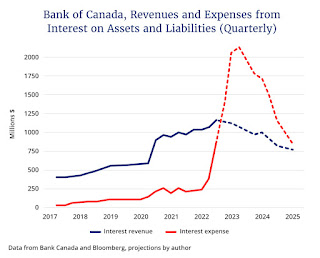This year six major U.S. banks, and four of the Big Five Canadian banks, have announced plans to leave the UN-sponsored Net-Zero Banking Alliance.
Banks quit Carney’s net zero alliance. Giving up net zero ideology should be next | Financial Post | Gina Pappano:
January 28, 2025 - "In November, InvestNow, the not-for-profit of which I’m executive director, submitted shareholder proposals to Canada’s Big Five banks asking them to exit both the Net Zero Banking Alliance (NZBA) and the Glasgow Financial Alliance for Net Zero (GFANZ) ... two interrelated, UN-sponsored, and Mark Carney-led organizations whose members pledge to align their lending, investment and other activities with decarbonization goals, including achieving net-zero emissions by 2050. As I wrote in these pages in December, 'Canadian banks should not pursue political or ideological goals at the expense of fiduciary ones. And they shouldn’t shun oil and gas.'
"Well, fast forward to January.... Six of the biggest U.S. banks have all announced they’re leaving the NZBA and four of the Big Five Canadian banks — BMO, CIBC, Scotiabank and TD — have followed suit. Also, in perhaps the biggest defection of all, BlackRock has left the Net Zero Asset Managers Initiative (NZAMI) — the asset management arm of the GFANZ. It is ironic that in the week Mark Carney announced his run for Liberal party leader, his most cherished project collapsed.
"Why have these banks fled the net zero alliances en masse? In the U.S., at least, it likely has to do with the new administration having indicated an interest in investigating ESG (environmental, social and governance) lending and investing practices as potentially constituting a fraud against shareholders and the economy.
"The U.S. banks have also been accused of collusion by the Republican-led House Judiciary Committee, on the grounds that their net zero policies, including divestment from oil, gas, and coal, have contributed to the big rise in energy prices since 2020. The committee found 'substantial evidence that a climate cartel of financial institutions' had engaged in 'anticompetitive collusion' by demanding that companies 'disclose, reduce and enforce' their net zero climate commitments....
"Both the American and Canadian banks have stressed that leaving NZBA won’t affect their net zero commitments or their determination to help achieve a 'net zero global economy,' which means drastically reducing oil and gas production and consumption over a very short period....
"Canadian banks should take what is happening in the U.S. as a warning. Maintaining their singular focus on decarbonization to achieve net zero leaves them open to charges of collusion, too. The real-world effect of their favoured policy is to eliminate oil and gas, one of Canada’s most productive and prosperity-creating sectors. Its elimination would be bad for bank shareholders and customers, industry in general, the economy and our entire country. Their continuing down this ideological path, which runs contrary to the interest of shareholders and the public alike, should prompt further investigation.
"InvestNow applauds the banks in both countries for exiting the net zero alliances as a first step towards moving past the madness of 'Net Zero by 2050.' But the fact that they remain committed to decarbonization, to net zero, and to the effective end of our natural resource sector demonstrates that our work is not done. Our banks need to ditch ideology and get back to serving the people of Canada and their interests."
Read more: https://financialpost.com/opinion/opinion-banks-quit-carneys-net-zero-alliance-zero-ideology
Canadian Banks ABANDON Carney’s Net Zero UN Plan in SHOCKING Move | The Elev8 Podcast | January 18, 2025:



